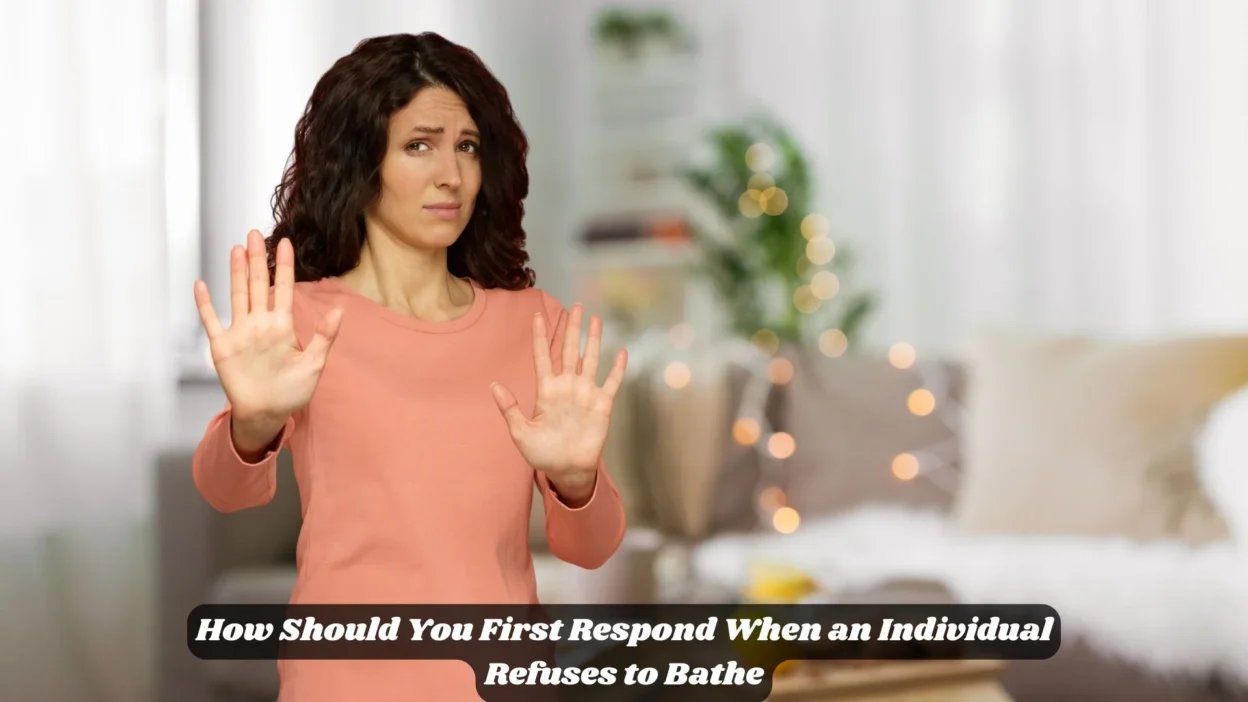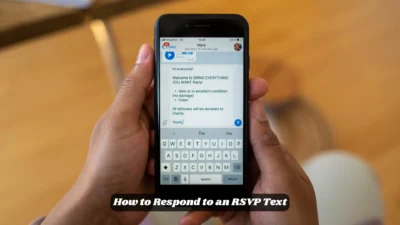You might be looking for a kinder, softer, or more effective way to say how should you first respond when an individual refuses to bathe.
Maybe you’re in a sensitive situation with a loved one, a colleague, a caregiver, or even a child.
It’s not always easy to bring up this topic without sounding too harsh or offensive. Luckily, you’ve found the right place.
This article offers over 100 thoughtful and varied expressions you can use instead. Every situation is different—some call for formal language, others for casual words.
Sometimes you need to be polite and respectful, and other times, light and friendly.
Whatever your case, you’ll find a useful phrase here.
Formal Ways to Say How Should You First Respond When an Individual Refuses to Bathe
These expressions are great for professional or sensitive settings where respect is important.
- Consider discussing personal hygiene concerns calmly
- Suggest reviewing daily routines for health
- Recommend seeking support for self-care habits
- Encourage consistent cleanliness practices
- Invite a discussion about grooming standards
- Propose healthy hygiene as a shared goal
- Reflect on the importance of cleanliness
- Mention the health benefits of bathing
- Bring up hygiene as part of wellness
- Ask about comfort with personal care
- Frame it as a health conversation
- Highlight the role of hygiene in confidence
- Talk about support for daily self-care
- Discuss positive habits for overall wellness
- Ask if any assistance is needed with bathing
- Gently open a dialogue about hygiene
- Present cleanliness as part of routine health
- Explain how hygiene affects well-being
- Emphasize dignity through self-care
- Express concern in a caring tone
- Share the benefits of regular hygiene
- Discuss cleanliness in a health-focused way
- Reassure that support is available
- Normalize conversations about hygiene
- Promote mutual respect and cleanliness
- Make it about safety and comfort
- Bring in a trusted health professional
- Recommend a daily care routine
- Use supportive language to talk hygiene
- Address the topic with calm empathy
- Open space for understanding and trust
Informal Ways to Say How Should You First Respond When an Individual Refuses to Bathe
These are easy, everyday ways to start the conversation with friends or family.
- Hey, let’s freshen up a bit
- How about a quick shower?
- Wanna clean up together?
- You’ll feel better after a bath
- Time for a little rinse, maybe?
- A hot shower might help your mood
- Let’s wash the day off
- Want me to help get stuff ready?
- Feeling like a cleanup today?
- It might be a good time to shower
- Bath time soon?
- You’ll love how you feel afterward
- Let’s splash into some freshness
- Need help getting the water going?
- That shampoo’s waiting for you
- Let’s shake off the funk
- Time to wash off the day
- How about some soap and chill?
- A nice soak might feel good
- Let’s freshen up for the evening
- You’re due for a spa moment
- It’s a good day for a scrub
- That bathrobe’s calling your name
- You’ll feel like new again
- Time for your sparkle routine
- Let’s get squeaky clean
- A little wash can lift your spirits
- Shower party time?
- Smelling fresh feels great
- You’ve earned a nice bath break
- Let’s rinse and relax
Idiomatic Ways to Say How Should You First Respond When an Individual Refuses to Bathe
These phrases add fun or indirect meaning, perfect for gentle nudges.
- Time to hit the showers
- Wash the day away
- Clean up your act
- Scrub the stress off
- Get the stink off
- Smell like a rose
- Soak the worries away
- Time for a refresh
- Rub off the grime
- Get squeaky clean
- Wash the funk away
- Shower off the blues
- Time to rinse and shine
- Rub-a-dub-dub moment
- Freshen up your vibe
- Time for a splash of clean
- Wipe the slate clean
- A little rinse never hurt
- Knock off the dust
- Time to lather up
- Take a trip to soap city
- Wash off the week
- Reset with a rinse
- Bathe the day away
- De-grime and unwind
- Smell the freshness
- Soak up some self-care
- Time for a soap break
- Clean slate time
- Go from dusty to dazzling
- A good scrub does wonders
Professional Ways to Say How Should You First Respond When an Individual Refuses to Bathe
Use these at work, in care facilities, or other professional settings.
- Let’s review hygiene goals together
- Can I support you with personal care today?
- Would a shower be helpful right now?
- Let’s make hygiene part of today’s plan
- A fresh start might boost your energy
- I’m here to help with grooming if needed
- Let’s work hygiene into the daily routine
- Keeping clean supports overall health
- Would you like some assistance getting started?
- Maintaining hygiene is part of good care
- Let’s talk about comfort and cleanliness
- Bathing can be a form of self-care
- I can help with your bath setup
- A rinse might help you feel refreshed
- Let’s aim for a clean and healthy day
- Are you comfortable with today’s hygiene needs?
- Hygiene helps support your wellness
- Personal care is important for dignity
- Let’s approach hygiene with care and support
- Would it help to talk through hygiene routines?
- Let’s make sure your care needs are met
- Cleanliness can help prevent health issues
- Shall we include hygiene in your schedule?
- I’d like to support your comfort today
- Let’s begin the day with a hygiene check
- I’m here if you need help with bathing
- Let’s ensure you feel fresh and well
- Would you prefer morning or evening care?
- Hygiene is a key part of feeling good
- Clean starts help build confidence
- Let’s plan your grooming time together
Conclusion
Using the right phrase makes all the difference. When someone refuses to bathe, the words you choose can open a door or shut it. You don’t have to be harsh or awkward—there are plenty of thoughtful ways to handle it with care, humor, or professionalism. Pick the tone that fits best for your situation. Then, practice saying it in a kind and supportive way. You’ll make progress without hurting feelings.
Meta Description:

Lily Monroe is a passionate American author known for her insightful storytelling and fresh perspectives on modern life. With a deep love for literature and a talent for weaving relatable narratives, Lily captures the complexities of human emotions and everyday experiences in a way that resonates with readers around the world.
Writing from her cozy home office, Lily blends creativity and intellect, often drawing inspiration from her own life, travels, and the stories of those around her. Her writing style is approachable yet thought-provoking, making her work both enjoyable and impactful.
When she’s not writing, Lily enjoys reading contemporary fiction, exploring local bookstores, and sipping coffee while planning her next literary adventure.
Lily Monroe is the author of several well-loved books, including:
-
“The Silent Pages”
-
“Beneath the City Lights”
-
“The Heart’s Compass”




